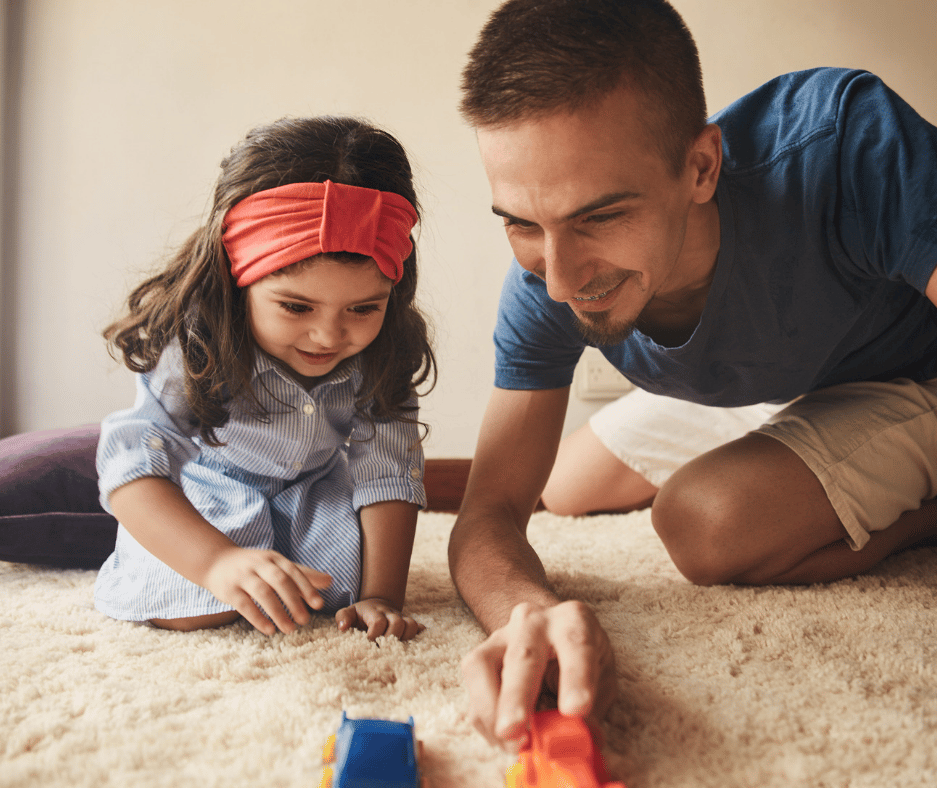Playtime: Unlocking the Joyful World of Fun and Learning
Explore the wonders of playtime, a gateway to endless joy and learning for children. Discover the importance of play and find creative ideas to make them even more exciting and educational for your little ones.
PARENTING


Playtime: Unlocking the Joyful World of Fun and Learning
As a parent, I understand the importance of creating memorable moments and fostering a sense of joy in our little ones. Playtime is not just a break from routine; it's a crucial part of a child's development. So, let's explore the magic of playtime and discover how we can make it even more special for our kids.
The Power of Playtime
Did you know that there’s a link between adventurous play and children's mental health? Experts say kids engaging in more adventurous play experience less anxiety and more positive emotions. Moreover, it can improve their mood and long-term mental well-being.
Playtime is so much more than just fun and games. It's a crucial aspect of a child's growth and development. Here are a few reasons why it is essential:
Physical Development: Playing helps children develop motor skills, coordination, and balance. Whether climbing a jungle gym, riding a bicycle, or simply running around promotes healthy physical development.
Cognitive Development: It stimulates the brain and enhances cognitive abilities. Children learn problem-solving, critical thinking, and decision-making skills through imaginative play, puzzles, and educational games.
Emotional Development: It allows children to express and regulate their emotions. Moreover, it encourages social interaction, empathy, and cooperation. At the same time, it fosters emotional intelligence and resilience.
Creativity and Imagination: It sparks imagination and creativity, allowing children to explore and create their worlds. Building with blocks, painting, or engaging in pretend play nurtures their artistic and innovative abilities.
Social Skills: It offers valuable opportunities for children to interact with others, developing essential social skills such as sharing, taking turns, and teamwork. It lays the foundation for building friendships and developing healthy relationships.
In sum, scientists have been studying how play, cooperation, and creativity affect a child's growth. They found that kids play together in groups and use their imagination. It helps them improve at moving, thinking, socializing, and handling their emotions.
The types of games they play, and their conversations during playtime also affect how they see themselves. It influences how they make moral choices and how they work with others.
Three Tips for Amazing Playtime
This brings us to the next section on what games kids can play to nourish their minds, body, and mood. Let's dive into some practical tips to make it truly amazing.
1. Follow Their Lead
Encourage your child's interests and allow them to take the lead. Whether it's building a fort, playing dress-up, or engaging in a specific game, let their imagination guide the play. This empowers them, boosts their confidence, and fuels their creativity.
2. Join in the Fun
As a parent, your active participation can make it even more enjoyable for your child. Get down on the floor, play pretend, and let your inner child come out to play. By engaging with your child, you not only strengthen your bond but also create lasting memories.
3. Balancing Structured and Unstructured Play
While structured activities and games have their place, it's equally important to allow unstructured playtime. This means allowing your child to explore and create without rigid rules or expectations. Unstructured play fosters imagination, problem-solving skills, and independence.
Experts found no significant differences in motor skills between unstructured and structured play groups. But, the structured play group performed better in some specific playground activities.
Moreover, outdoor playtime can offer opportunities for active play and exploration. It’s important for reducing sedentary behavior. Preschoolers should have access to environments that promote physical activity.
Frequently Asked Questions About Playtime
1. How much time should my child have to play each day?
The recommended playtime varies depending on your child's age. As a general guideline, toddlers and preschoolers should have at least 60-90 minutes of active play each day, while older children should aim for at least one hour. It should be a joyful and flexible experience, so adapt it to your child's needs.
2. What educational toys or games can I introduce during playtime?
There are countless educational toys and games available that can make playtime both fun and enriching. Consider puzzles, building blocks, board games, art supplies, and STEM toys. These options promote learning, problem-solving, and creativity
3. How can I encourage my child to play independently?
Independence during playtime is an important skill for children to develop. Start by providing open-ended toys and activities that encourage creativity and self-directed play. Then, slowly increase the time of independent play and offer praise. Additionally, encourage along the way.
Takeaway
Playtime is a gift we can give our children every day. It's an opportunity for them to learn, grow, and experience the world in their own unique way. By creating a play-friendly environment, joining in the fun, and nurturing their interests, we can unlock the joy and magic of childhood.
So, let's make it a priority, and watch our children thrive as they laugh, learn, and explore. Remember, the most valuable gift we can offer our children is our time and presence during these precious moments. Now, let's go and play!
Follow us for your daily inspirational boost.
Sources:
https://link.springer.com/article/10.1007/s10578-022-01363-2
https://www.ncbi.nlm.nih.gov/pmc/articles/PMC9590021/
https://www.ncbi.nlm.nih.gov/pmc/articles/PMC9265359/
